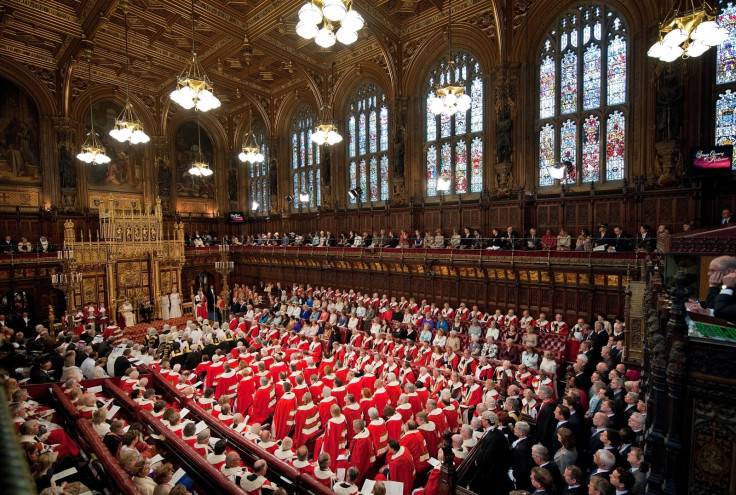Why MP Marcus Jones was held hostage at Buckingham Palace while Queen opened Parliament
There is also a tradition where the door to the Commons is abruptly shut on the face of the Black Rod, the chief Lady Usher to the Queen.
When Queen Elizabeth II attended the State Opening of Parliament in Westminster on Tuesday, Nuneaton MP Marcus Jones was held hostage at Buckingham Palace until she returned, as per an age-old custom in Britain.
Whenever the Queen visits the Palace of Westminister where MPs and Lords meet to form and change the laws of the land, a British Member of Parliament is held hostage awaiting her safe return. This archaic tradition seems unnecessary in the 21st century, but it started as a genuine concern for the safety of the monarch.
The monarch of Britain is a constitutional position, and therefore the Crown does not interfere with the work of the Parliament. However, there have been times when the monarch and the Parliament have not been on friendly terms due to a difference in opinion about important matters.
The same led to a crisis in 1629, when King Charles I shut the doors to Westminster and did not allow his Parliament to meet for as long as 11 years, a period which was known as the "Eleven years Tyranny." The Parliament reconvened when the monarch could no longer afford to pay English troops to fight a Scottish Army that had invaded England, but he dissolved it again after only a few days. Over the next few months, the Parliament gained more control over the government policy, while Charles left London in 1642 to raise an Army in an attempt to regain control by force, leading to the English Civil War.
After the war ended, Charles I was found guilty of treason and was executed in Whitehall. From that day forward, the reigning monarchs have refused to enter the Houses of Parliament without taking an MP as a hostage for their own peace of mind.
In theory, if something terrible happens to the Queen while she is in Parliament, the hostage MP would also meet the same fate, though it has never happened yet and it is highly unlikely that it will happen today, reports Royal Central.
Former MP Jim Fitzpatrick who was once the Queen's hostage told the BBC: "They didn't lock me up, but they made it quite clear that I wasn't going anywhere." When he expressed his anxiety to the head of the Armed Forces, he was told: "If anything had happened to Her Majesty, we would have made it quick. We would have just shot you."
There are several other historical traditions followed on the Parliament's opening day, including searching the cellars for gunpowder on the evening before the visit by the Sovereign, a tradition that started when a group of men tried to assassinate King James I by blowing up the House of Lords during the State Opening.
There is also a tradition where the Queen is forbidden to enter the House of Commons without permission, to show the Commons supremacy over the monarch. The monarch first sends Black Rod, the Chief Lady Usher to the Sovereign and an officer of the Order of the Garter, who is accountable for discipline and security in the House of Lords.
When Black Rod arrives at the Commons, the door is abruptly shut in her face, following which she knocks on the ground three times with her rod and is let in. After entering the Chamber, she proceeds to the middle of the House to the Speaker's chair, makes three obeisances and then states: "Mr Speaker, The Queen commands this Honourable House to attend Her Majesty immediately in the House of Peers."
The Black Rod then escorts the Speaker and the Commons to the House of Lords to listen to the monarch's speech, which officially opens Parliament. The current Lady Usher of the Black Rod is Sarah Clarke, who was appointed to the role in 2018, and is the first-ever woman to hold the post in the 650-year history of the role.

© Copyright IBTimes 2025. All rights reserved.





















